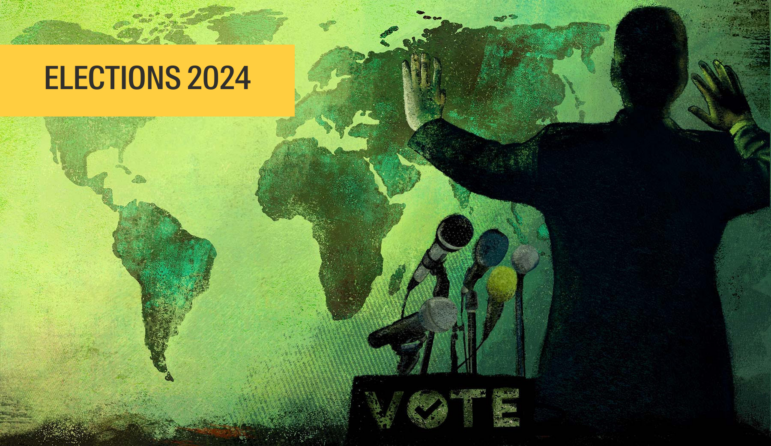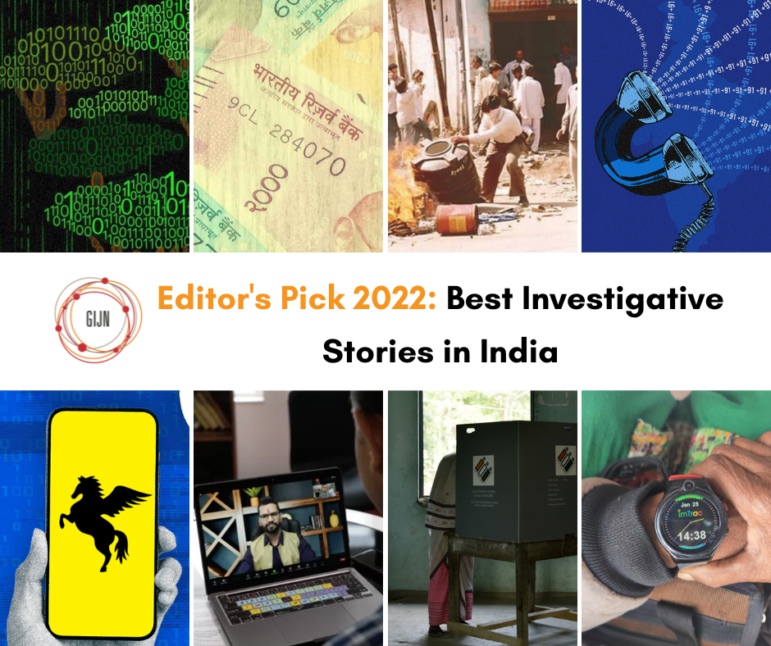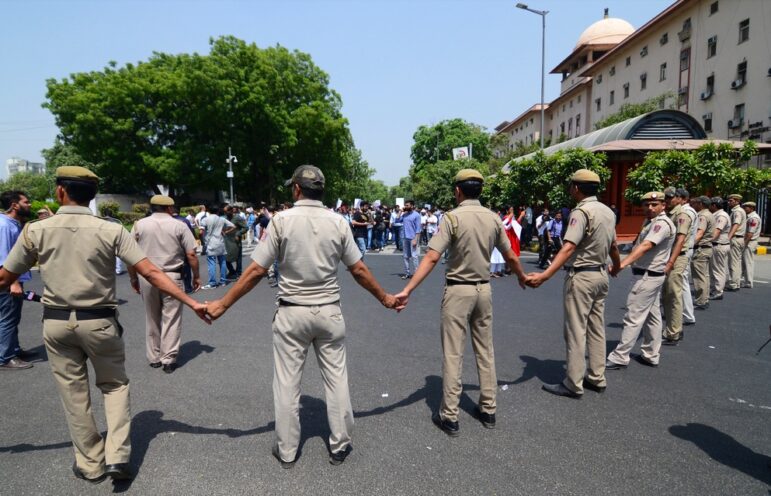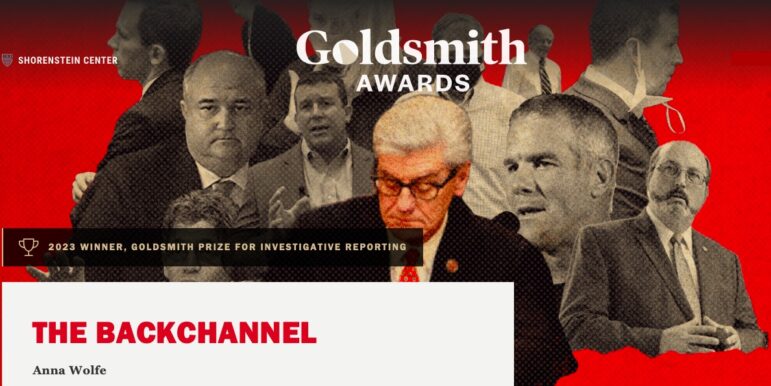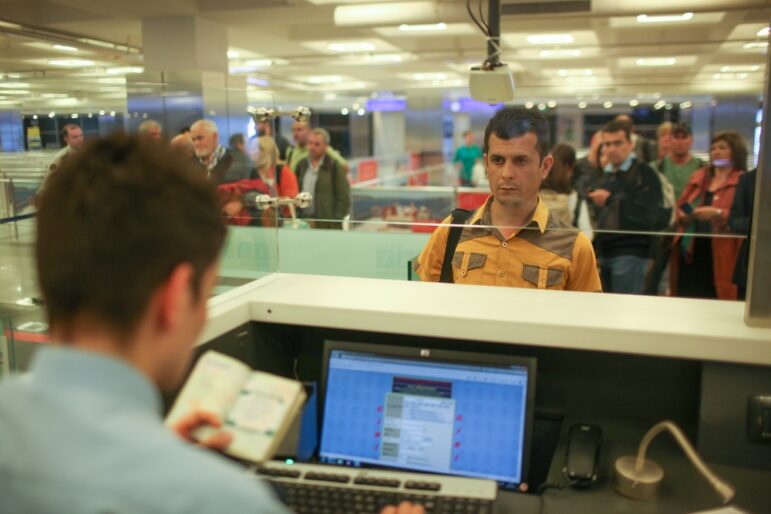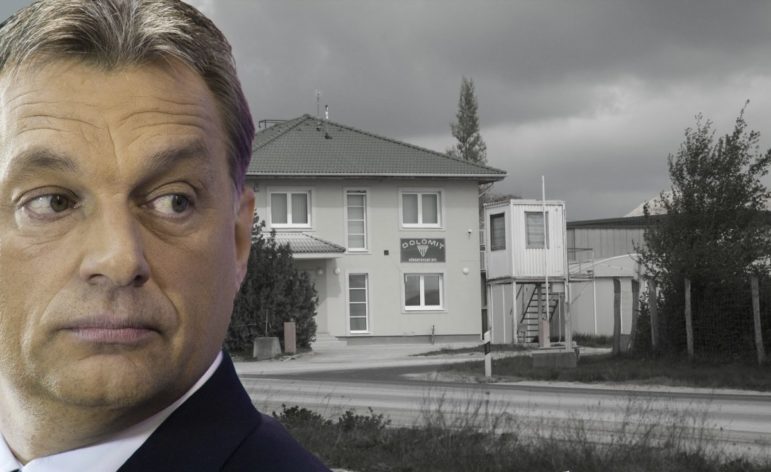

How They Did It: Unearthing Secrets of Hungarian Prime Minister’s Family Business
Read this article in
Last May, after a complex, months-long investigation, Hungarian investigative journalism centre Direkt36 published its first story about how the companies of Prime Minister Viktor Orbán’s family were secretly benefiting from projects funded by the government – often paid from the European Union’s budget. Direkt36’s András Pethő and Blanka Zöldi share five interesting breakthroughs in the reporting.
Investigation on the Run
András Pethő: My favorite place to run in Budapest is Margaret Island. I’ve been there countless times, but my run on August 4, 2016, was a special one. Not because I was particularly fast, but because I saw something interesting that day.
A sewage construction project was taking place on the island and big concrete objects were piled up in different spots. As I was running by one of these piles I noticed that there were small metal plates on the objects. I stopped to check what was written on the plates and found that the items were produced by a company called Dolomit Kft., based in Gánt, a town about an hour’s drive from Budapest. The name was familiar: the company belonged to Győző Orbán, the father of Hungarian Prime Minister Viktor Orbán.
I had heard rumors that the companies of Orbán’s family members were participating in state construction projects. We even tried to find evidence of it, but we quickly hit a huge obstacle, namely that it was extremely difficult to get official records about their involvement. The Orbán companies participated in the projects as suppliers – not as main contractors – and public databases do not contain information about suppliers.
This had discouraged us from digging deeper, but what I saw on Margaret Island gave us new momentum. This was a direct confirmation that the rumors from the construction industry were not baseless. It also gave us the idea to visit other construction sites to try and find items that may be coming from the Orbán companies.
Tailing Trucks
Pethő: This was clearly a complex case, so we launched the investigation on several tracks. We collected public records and developed sources in the construction industry who may have had information about the Orbán companies’ participation in public projects. Plus, I became a frequent visitor to the headquarters of the family’s businesses, which is a mining site close to Gánt.
At first, I went there just to see what the site looked like. It became clear soon enough that there was quite a lot of traffic at the mine. In just a couple of hours I saw several trucks coming and going. They were loaded with stones and other products and then drove off.
This gave me an idea. What if I follow these trucks? If I’m lucky I’ll be able to figure out who the clients of the Orbán companies are.
It sounded simple, but I realized pretty quickly that following someone or something by car is not an easy thing to do. First of all, it’s difficult to find the right distance. If you stay too far behind, you can easily lose your target at traffic lights if the light turns red before you cross. If you get too close to the truck then it might blow your cover, as the driver of the slow-moving truck will wonder why you don’t pass his vehicle.
I had my fair share of failures during these adventures. Once I lost a truck after following it for more than an hour. Another time I managed to tail a truck until it reached its destination, but it turned out to be irrelevant to our story. But this method produced some success as well. A truck I tailed led me to the asphalt mixing site of a construction company working on big public projects, which became an important part of our story.

Following the Truckers: Direkt36’s graphic showing which construction projects received supplies from a company belonging to the Hungarian prime minister’s father.
Mining Documents in Strange Places
Pethő: Finding official documents about the companies’ involvement was a crucial part of the investigation from the outset. What made this difficult was that we did not really know what kind of documents we had to look for. Nobody could tell us in what files we could find papers with the information about the Orbán companies. So, we tried to gain access to the complete archives of certain public projects even though we knew that these archives could be huge, often tens of thousands of pages. Both of our reporters had interesting experiences with this part of the investigation.
It was a breakthrough in our investigation when I managed to get an official document showing that an Orbán family company was a supplier in a major sewage construction project in Érd, a town near Budapest. I was especially happy because getting the documents was quite difficult.
Although the company in charge of the sewage project was open to giving me access, there were some obstacles. The company’s manager warned me that the archive was huge and only some parts of it had been digitized. He added that the bulk of the papers were kept in a metal container at the local sewage water facility. And this turned out to be a problem.
I approached the company last winter when we were going through an extraordinarily cold period. The manager told me that, according to their regulations, he had to assign one of his colleagues to be with me while I was checking the documents. And he didn’t want any of his employees to suffer in the freezing cold. So, he asked me to get back to him when the weather improved, and the temperature rose above zero.
I kept checking the forecast and when I saw that it was going to be warmer I called him again and got an appointment. It was still very cold in that container and my fingers were nearly frozen, but having found the first document proving the Orbán company’s involvement in the construction made me so enthusiastic that I did not really care about all these inconveniences.
Blanka Zöldi: Like with the sewage system construction project in Érd, it was not easy to obtain other project documents. For example, the construction works in the villages of the Tápiómente region ended in May 2016 and the project company was dissolved. Nearly a year later, it was difficult to find out who would have the documents.
In the end, we turned to the local government of Nagykáta. We had a two-week-long email correspondence with the mayor who finally invited us for a personal meeting; we thought the meeting’s aim was to show us documents. However, after an hour-and-a-half drive, we were surprised to be led into a completely empty office. It turned out that we had not been called to Nagykáta to see documents, but to have a discussion with the former technical project leader about the exact type of files we wanted to look into.
So, after the first unsuccessful visit, we had to wait another two weeks to actually see the documents. Right next to the soccer field in Nagykáta there was an old storage unit full of boxes of documents. I could hardly hide my happiness from the mayor – who was supervising me while I was going through the documents – when, in the third box I opened, I found some delivery notes with the name of one of the Orbán companies on it.
Summer Bike Tours
Zöldi: After the publication of our first article on the Orbán family’s business, we received several tips from our readers and other sources about other construction projects that the Orbán companies participated in. Two of these were being carried out during the summer: one was the re-cultivation project at a power station near Oroszlány, while the other was a big railway reconstruction at Lake Balaton.
Since the state-owned company that supervised the projects would not allow us to look into the project documents, I tried to obtain evidence of the Orbán family’s involvement on the construction site itself. I went to the sites by bike, because it was easier to approach the construction workers and talk to them – but also because I don’t have a driver’s license.
In the end, biking proved to be useful. On my way to the power plant, one of the first trucks that passed me on the road had the logo of the cargo company of the Orbán family. After I arrived at the entrance of the power station, I spent about an hour behind a tree, where I was able to make videos of more trucks from the same company arriving at the construction site.

Looking for Signs: A truck with the logo of the company of the Hungarian prime minister’s younger brother, arrives at one of Hungary’s oldest thermoelectric power plants. Credit: Direkt36.
The Balaton railway project was more difficult. On two occasions, I biked 80 kilometers along the rails under reconstruction, but I did not see any trucks at the site. On my way, however, several construction workers greeted me. They were quite surprised when, as a response, I biked closer to them to ask: “Do you know from which mine these crushed stones are delivered?”
But, since I told them I was a journalist, there were only a few workers who would actually answer my questions. Still, three different times I was told that the construction materials came from Gánt, from a mine owned by the prime minister’s father. When I finally arrived at the official project office, two employees confirmed the information I received from the construction workers. After I left the office, I celebrated with lángos – a deep-fried Hungarian dough, commonly sold at Lake Balaton – that I had managed to gather some valuable information about the Orbán family’s businesses.
Battle in Brussels
Zöldi: Before publishing, we always send detailed questions to everyone mentioned in our articles. However, Prime Minister Orbán and his father never responded to our emailed questions about their family businesses. We wanted to confront the prime minister about the fact that, while he had previously been opposed to his father’s involvement in state projects, his family now benefited from EU-funded construction projects. At events organized in Hungary, he would normally shrug off uncomfortable questions, so we needed to look for a better venue for the confrontation.
A Brussels-based journalist told me that twice a year, after the meeting of the European Council, Orbán tended to hold a longer press conference, where he usually would answer in detail all the questions of foreign and Hungarian journalists. So I quickly booked a low-cost ticket to travel to the press conference, held in June.
Over the two days of the council’s meeting, I spent most of my time in the European Parliament building, as the exact time of the press conference was not published in advance. Finally, the press conference was scheduled for the second day of the meeting, at 2 pm. Since the European Commission invited many Hungarian journalists to report on the event, the room was sure to be quickly filled with colleagues.
This made me uneasy. The press conference was delayed by an hour, and the prime minister’s aide had warned journalists at the very beginning of the press conference that Orbán could only stay until 4 p.m., and probably would not have time for everyone’s questions. At the U-shaped table, I tried to sit as close to Orbán as possible, but he started to take questions from the other end of the table – where the correspondent of MTI, the state’s news agency, was sitting.
Luckily, I had time to ask my question in the last 10 minutes. It was the first time I had questioned the prime minister in person, so I was a bit nervous. I had imagined many times before how the conversation would go, but I did not anticipate one thing: the tricky microphone on my desk. When I wanted to ask a question, I had to press a button on my microphone, and when Orbán replied, he pressed his button on his own mic.
Instead of directly answering my question, Orbán launched into a confusing explanation about his family’s business. I wanted repeat my questions, so while he was explaining, I pressed my button – I only realized later that by pressing my button I also muted his microphone. Now as I re-watch the recording of the press conference, it is funny to see that there was not only a battle of words, but also an invisible battle of microphones between the prime minister and me.
This post first appeared on the website of GIJN member Direkt36 and is cross-posted here with permission. To support Direkt36’s investigative reporting, you can contribute to its crowdfunding campaign here.
 András Pethő is a co-founder and editor of Direkt36, a nonprofit investigative newsroom based in Budapest. Petho spent much of his 14-year-long journalism career at Origo, once a leading online news site. He also worked for the BBC World Service and did two journalism fellowships in the United States.
András Pethő is a co-founder and editor of Direkt36, a nonprofit investigative newsroom based in Budapest. Petho spent much of his 14-year-long journalism career at Origo, once a leading online news site. He also worked for the BBC World Service and did two journalism fellowships in the United States.
 Blanka Zöldi is a journalist at Direkt36. She previously worked at Origo and Abcúg and was a former freelancer for Figyelő, a prestigious Hungarian business and public affairs weekly. Based in Budapest, she has a background in economic & business reporting as well as investigative reporting.
Blanka Zöldi is a journalist at Direkt36. She previously worked at Origo and Abcúg and was a former freelancer for Figyelő, a prestigious Hungarian business and public affairs weekly. Based in Budapest, she has a background in economic & business reporting as well as investigative reporting.

